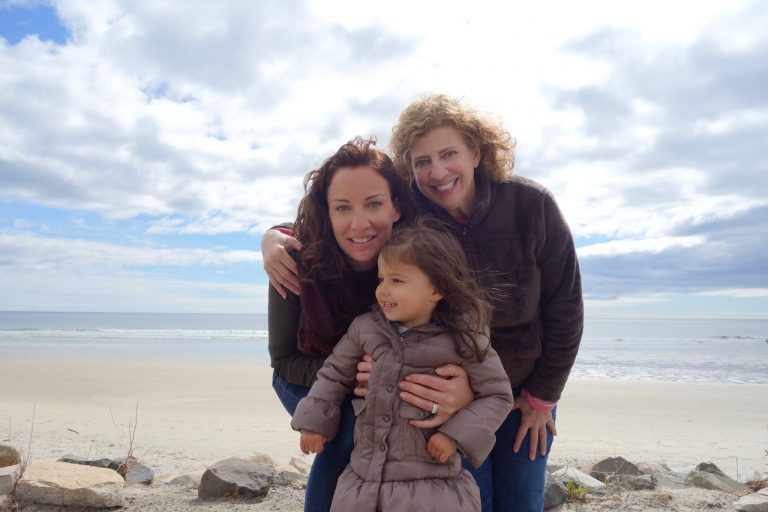|
In a year when many parents are feeling like we need to make up for (at least a partially) lost year, many of us wonder how we can best support our children at home and complement what they are learning in school. We spoke to Kathryn Goldstein, a preschool teacher with 20 years of experience in Westchester County, about how we can help build confidence and help them grow through both emotional and educational support. As she stresses, these are all concerns that parents face on a daily basis since life as we used to know it changed dramatically, and we need to remind ourselves that we are not alone.
SSP: How do we best help our kids adapt to the realities of an uncertain school year ahead? Life is about change and being adaptable and flexible, and I’ve been trying to embrace that concept when talking to my kids about new and different expectations throughout the year. It takes practice to learn these things and as the second year of covid school regulations begins we ask our kids to adapt again. We can remind them of all the ways they’ve learned new things, changed their routines, and point out their successes along the way! Small wins like learning how to use new technology, getting to know their classmates and teachers in new ways (and in their home environments) can spark new conversations that perhaps otherwise wouldn’t have happened. I might also point out that while they learned from home, they also got opportunities to be good neighbors and help others who might need it. Daily walks and taking the time to slow down are also some perks of the new routines the children were asked to learn. Our lifestyles have encouraged busyness and it’s been a good lesson to learn for us all about how to slow it down and see what’s actually important to you. SSP: Many kids (and parents) are experiencing stress around their academic development, thinking they didn't learn as much as they should have last year and feel behind. How can parents help acknowledge and address this (and ultimately be OK with academic imperfection)? Every single child experienced the “covid slide”. It’s expected and understood that children will not be where they might have been academically if we had not experienced a school shutdown. Emotionally and socially the children have been through so much and the lags in those areas of development continue to be evident and much more concerning in my opinion. Having a strong emotional and social curriculum, will set the children up for academic success. I think it's also important that we take this word "perfection" out of our conversation, and focusing less on worrying about your child being on his or her grade level but thinking that they may have missed certain things, or will be behind on certain things - and these are areas that we can focus on as teachers and parents...and work on together to improve. We are a team. SSP: If our child is experiencing more stress and anxiety, do you recommend approaching the teachers, and what do you suggest is the best way to go about this? A lot of kids are definitely experiencing heightened stress and anxiety. I like to utilize the schools support staff such as social workers, guidance counselors and Assistant Principals, as well as classroom teachers, to help ease a child’s anxiety. The teachers and administrators will work with the families at home to build a “bridge” to connect the coping skills that the kids are being taught in school and carry them over into the child’s home. SSP: This year will require additional emotional support for many of us. Do you recommend regular check-ins? How do we encourage our children to share and be open with us about their school experience? I think it’s so important to normalize how the children are feeling. Families, teachers, and friends can all provide ways to ground us and reassure us when we’re feeling confused, lonely, worried or isolated. However, If a child is feeling especially anxious or depressed, perhaps seeking outside help such as a therapist can also be an avenue to explore for additional support and guidance. As always, you as the parent are the best advocate for your child. To encourage your child to share how they’re feeling pick a time when your child is relaxed and calm (usually not right after school - maybe before bedtime) to ask them specific questions about their feelings, instead of more open ended questions which might be more difficult for them to answer. Questions such as, “Who did you sit with at lunch?“ or "Who did you play with on the swings today?“ Rather than a more general “How was school?” are easier for them to answer. Framing questions in a positive way is another way to encourage the child to share. Instead of asking if anyone was mean to them today, or who wasn’t listening at circle time, you can ask, “Who was a kind friend to you today?“ or “Who were you kind towards, and how did you show your kindness?” SSP: What is your advice for supporting learning at home and instilling the desire to learn, specifically for those in preK and elementary years? Motivation has been a big concern for parents. The younger children in pre-K and the early elementary grades might not be learning in the traditional sense - inconsistently being in the classroom, and with masks - but the bulk of their learning is still through play which can obviously take place anywhere and in any form. From a game of tag outside or riding a bike (developing their gross motor skills) to art projects and baking inside (honing fine motor skills through different art mediums and using math, science and reading to bake a cake…) there are many ways to keep a young child engaged and learning. Look for those “teachable moments”- you’ve been teaching your child without even realizing it! SSP: This past year has been grueling for parents. As a teacher and mother of 2, do you have any other words of encouragement for families? I’ve relied on my friends for support throughout this whole pandemic and continue to do so. A quick text to say thinking of you (or even to vent) has been so helpful. My friends have inspired me to exercise in a different way than I was, showed me how to utilize the time I had more effectively, and encouraged me through it all with their kindness and honesty. This helped ease my own anxiety so much on those especially trying days. It really does take a village. Reach out to those people you trust and can rely on for support!
0 Comments
Leave a Reply. |
Jen Valu
|



 RSS Feed
RSS Feed




